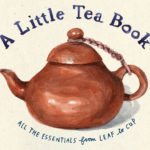Legacy Writing: A Spiritual Practice

Recently a young woman completing her theology studies asked me to explain why I call legacy writing “spiritual.” I was speechless. How to put words to something I believe deeply: that writing legacy letters is a spiritual act?
Writing about spirituality is difficult because spirit is ineffable. We can’t “see” spirit, nor define nor possess it. We can only communicate about the experience of it with our limited senses, intellect, and language. (Think about the awe of witnessing the birth of a baby or the thrill of viewing a magnificent sunrise.)
When I took on the task of translating the ancient tradition of the ethical will, making it relevant to contemporary life, I intuitively named it the “spiritual-ethical will” to make the spiritual nature of legacy writing explicit.
Legacy goes back to Genesis, from which the ethical will was crafted. Jacob blesses his sons in chapter 49, and asks them to return his bones from Egypt to the family burial ground where his ancestors, Sarah and Abraham, were buried. Jacob’s request and blessings became the template for the ancient ethical will. Practiced through the centuries, fathers wrote letters to their sons, passing forward the moral-ethical traditions from generation to generation.
As we age or realize our mortality, we naturally ask this spiritual question: “What will my legacy be?” The answer is rooted in stories of the past, a life of significance in the present, and passing on wisdom, love, and blessings for the future. In contemporary legacy letters as in the ancient, we bless the generations forward and make explicit our desires about our dying and death.
Today’s legacy letters can include a wider range of subjects. For example, they can preserve and communicate the wisdom, stories and legacies from our ancestors for those who will come after us. Writing this kind of letter we experience ourselves as a living link binding the past to the future. It is a sacred responsibility for elders to pass the values of our culture and civilization forward.
Another example is a letter of regret, an apology for something we’ve done that hurt another. This is healing for the writer who takes full responsibility for their actions. It may also affect the family, opening communication where there’s been resentful silence, strengthening relationships when the family has been estranged, beginning the powerful, spiritual process of forgiveness. A letter of apology also teaches the young by example that elders can admit mistakes, be vulnerable, and make a sincere effort to right wrongs.
Dr. Andrew Weil suggests that writing an ethical will is a gift not only to family and loved ones, but healing for the writers themselves. How, you ask? Often legacy writers experience release from anxiety, an acceptance of who they are, an understanding of their life purpose, and deep human needs are addressed.
What are these deep human needs? There are seven: belonging, being known, being remembered, being needed, being blessed and blessing others, making a positive difference with our lives, and celebrating Life.
Though I currently work with all faiths and ages, and both genders, I began doing legacy work holding a spiritual question: How could I respect this ancient patriarchal tradition and provide a means for modern women to find their voices to express their values? I crafted a program and formed “women’s legacy circles,” so we could write “in community.” The rules were simple: this was neither a writing group so we wouldn’t critique each other’s writing, nor was it a therapy group so we wouldn’t analyze each other’s writing. Instead, we would keep a sacred circle in which women would be safe to share their writing if they chose, and the circle would gift the writer by listening as deeply as we were able. It was miraculous. Whether I was working with “lifers” in a women’s prison, women in 12-step programs, or in faith-based organizations, being deeply heard allowed women to explore, reflect, and write to their loved ones about the things that really mattered to them. Of course legacy writing can be done in isolation, but writing-in- community multiplies the blessings. The circle feeds each individual’s need to be heard, known, to feel belonging in a larger world.
Legacy writing requires us to accept “the idea” of our mortality (if we weren’t mortal, there’d be no need to write legacy letters preserving history, stories, wisdom and love for those “who’ll come after us.”) Unless we’re ill with a life-threatening disease, we keep death at a distance, even as we age.
Making the decision to explore the important events and values of our lives to pass that wisdom to future generations is a spiritual act. We’re confronting something beyond our everyday thoughts, feelings and actions, easily deleted tweets and emails. We’re entering the realm of “meaning.”
Beyond writing a letter to accompany our advance health directive (expressing our wants and needs at end-of-life), there is another significant legacy letter. This is a letter that breaks our culture’s last taboo, a legacy letter about money.
This legacy letter accompanies our will (the legal document distributing our material wealth), and because the ethical will is not a legal document, it can be as personal, explanatory, and lengthy as the author wishes. This legacy letter clarifies thoughts, feelings, and values that motivated the writers’ decisions about leaving material gifts. Defining and communicating deeply held values that led to making philanthropic gifts defines our uniqueness and helps others know who we really are.
This kind of letter also models a new paradigm about money. Communication breaks down the silence surrounding money that has caused misunderstanding, difficult feelings, and complications in family relationships in the past.
Younger generations will also receive an unexpected new legacy from us – establishing a “new normal”: talking and writing about money. Those who have written these legacy letters to accompany their wills (the legal document distributing material wealth) report an experience of relief, satisfaction, even peace – putting material things to rights, as do legacy writers who have the courage to write about the reality of their deaths, even if death may be years, even decades in the future.
A legacy letter that accompanies the legal advance health directive acknowledges the reality of death. This letter can explain “why” we’ve chosen what we’ve chosen, more personal than the objective “do and don’t” of the legal document.
Once the subject is introduced we can have real conversations with our loved ones about the reality of aging. We can begin to share our fears and desires, our concerns and our doubts, with each other, and we leave a legacy to younger generations beginning a new way of relating to death and dying. Finally, the rewards of writing this letter for the writer are many: a trust that what we hope for in dying will be carried out by loved ones; that we are not just parents or grandparents, but sacred human beings with unique identities who want to be known in our strengths and vulnerabilities by those we love and who love us.
We’ve come full circle, asking about the spiritual nature of contemporary legacy writing. Crafted originally from the Hebrew Bible, we write today about our modern concerns, learning, values, and love, not so different from Jacob of old.
In our complex, contemporary world, where we avoid and distract ourselves from the reality of our mortality, we can choose to write legacy letters to acknowledge our humanity – to express our love of life and to bless future generations. What could be more spiritual than that? I think nothing!
May we all be blessed with the love and courage to write to the future; may our legacy letters meet our needs and strengthen our families and future generations.









